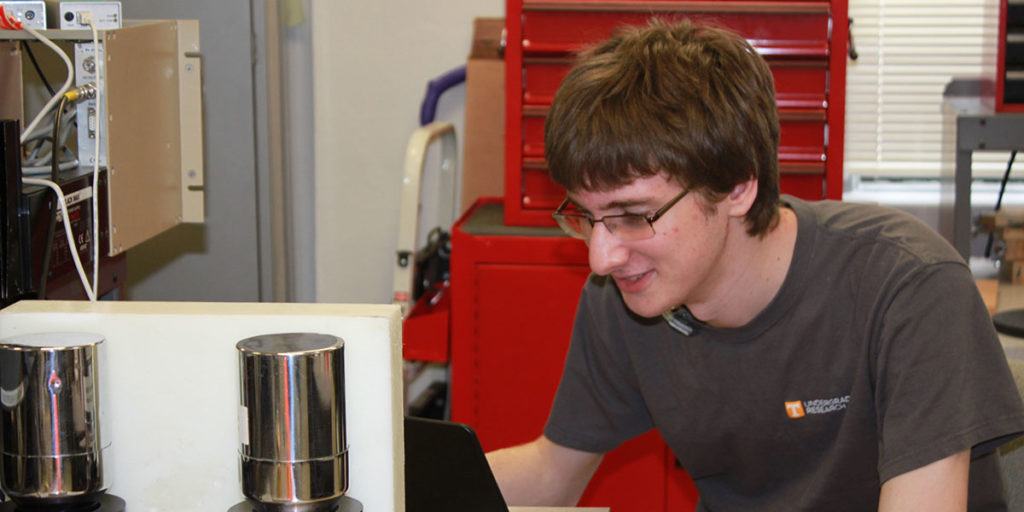Study Nuclear Engineering: Save the World
The most visible example of nuclear engineering is the production of nuclear energy, which is sustainable, safe, and has no carbon footprint. But nuclear engineering is so much more than that. Nuclear engineers also:
- Help the medical field diagnose and treat diseases and sterilize equipment;
- Identify and analyze materials such as pollutants;
- Provide an added level of security to transportation;
- Aid in the diagnostics and maintenance of structures and materials;
- Provide a more reliable, cost-effective power supply for use in space exploration.
Watch the video to hear more about the future of nuclear in East Tennessee.
Undergraduates may elect a traditional nuclear power engineering track focusing on fission energy or a radiological engineering concentration, which prepares students for careers in the radiation safety field (health physics). Both tracks lead to a Bachelor of Science in Nuclear Engineering and are ABET accredited. Students can also earn minors in: nuclear decommissioning & environmental management, reliability and maintainability engineering, and concepts of cybersecurity, and nuclear safety.
These exceptional opportunities ensure our graduates contribute to an important field needed by the United States to maintain its standard of living and its place in the world economy.
Choose Your Nuclear Engineering Path
Most of our students select one of two paths and take advantage of the relevant opportunities identified below, which have been shown to have a large impact on their careers. No matter the direction you choose after graduation, your classes and our instructors will help you obtain your goal.
If you intend to begin your career after graduation, we highly recommend the following:
- Work with the Office of Engineering Professional Development to obtain internships or co-ops.
- Consider adding one of our minors, which help increase your employability.
If you intend to apply to graduate school, we highly recommend the following:
- Participate in a summer internship, preferably at a national laboratory.
- Conduct undergraduate research through the Office of Undergraduate Research & Fellowships.
Read more about both options on our Career Advising webpage.
Nuclear Engineering Degree Curriculum Information
Accelerated Master of Science Degree Program
The department has developed the Five-Year BS/MS program in which top undergraduates can begin graduate course work and graduate research while still completing their undergraduate studies. Read more about the Five-Year BS/MS program.
Reasonable Cost and Scholarship Opportunities
Nuclear engineering students from Alabama, Arkansas, Delaware, Kentucky, Louisiana, Maryland, Mississippi, Oklahoma, Virginia, and West Virginia can qualify for the in-state tuition and fees through an agreement among southeastern states called the Academic Common Market. Students also have excellent scholarship opportunities through the UT campus, the Tickle College of Engineering, the nuclear engineering department, and national organizations. Our students are consistently awarded more DOE Nuclear Engineering scholarships than any other nuclear engineering department in the country. Read more about funding opportunities.
Excellent Academic Program and Partnerships
The department benefits from its association with nearby Oak Ridge National Laboratory, Y-12 National Security Complex, UCOR at the East Tennessee Technology Park (ETTP), and more than one hundred nuclear related companies located within the area.
This information was prepared by the department for prospective students. Every effort was made to report accurate and current information. Students may obtain official information by contacting the Office of Undergraduate Admissions or One Stop.
